Before we started travelling, we researched about South Asian countries a lot; but we didn’t think that someday we will go to Russia. We hastily write how to read Cyril letters on a paper; we can read almost everything even we can’t understand what it is.
Irina, with whom we met on the plane, takes place in our story as a young Russian woman graduated from a university in Shanghai, visiting her family in summer holiday. As a fluent English speaker, she gives important tips to us about Lake Baikal during the flight. By chance, we learn that her house is close to the house of the couple who will host us via Couchsurfing. When the plane lands on the airport of the city dominated by Brezhnev blocks, we leave her to wait for a wheelchair as we got used to in South Korea. After everybody gets off, at the end of our long waiting we understand that staff of the airport has a totally different idea!
Without using even the stairs of the plane, we get on a truck from the emergency exit and get off on the other side of the road which would take less than a minute by walking. It wasn’t necessary, really, but we can not explain it to the staff.
When we get off, waiting for a wheelchair, we find ourselves queuing with crutches in a building looks like a train station of a small city. “What is all about?” We ask for help from a passenger to carry the bags and pass the passport check. According to the paper given to us, we have 3 months visa for Russia; immediately and for free! Welcome to Russia!
After taking our bags, we see Irina with her parents waiting for us; even after the whole long process of leaving the plane and getting our visas. They take us with their car to somewhere to drink coffee, driving through the streets with trolleybuses. While chatting and eating something with coffee, they find a wheelchair for us to use when we are in Irkutsk. Then they take us to our Couchsurfing house after loading the wheelchair to the car.
Vadim meets us and takes us to his flat in a “typical Soviet apartment block architecture” building. The flat with 2 small rooms modified to a duplex flat when combined with a room downstairs. Vadim is a lecturer in university, Vera works for a web design company. They live with Lisa, the cat of the house.
We talk with Vadim on Russia and everything else. He takes us to a tour in time with the wheelchair in the Soviet time atmosphere of Irkutsk, on streets named after Karl Marks, Lenin, and Gorki…
Irkutsk is a calm and nice city with Soviet architecture and older wooden houses in the center. Cars from Soviet Union, huge historical buildings… While wandering on streets we get our energy back, which we thought we lost some time ago. Travelling in the city whole day with a wheelchair is hard but enjoyable.
The street with old wooden houses is renewed with a restoration project and the houses are transformed to expensive restaurants. Most of the locals support the demolishment of old buildings if they are not renewed. Shopping malls are built on where these houses are demolished, like in everywhere else. The name of a new shopping mall is like mocking: “KOMSOMALL”. (KOMSOMOL is the abbreviation of “All-Union Leninist Young Communist League”, established in 1918 as the youth division of “The Communist Party of the Soviet Union”). What Vadim says perfectly fits the situation; “Capitalism kills and dances on the corpse”.
Summer is short, winter is long and hard. So, there are not many vegetables and fruits produced, mostly meat is consumed. Vegetables generally come from warmer neighboring countries like Uzbekistan and Kazakhstan, and of course they are pretty expensive. People who can afford after the Soviet Union, own a “Dacha”.
We hear about this term for the first time, thanks to Vadim. “Yes, we know. Isn’t it some kind of Hobby Garden?” we say. “Actually it is something more than a hobby garden” he answers. It is essential to economically survive and for healthy food. We learn that, 40 % of all vegetables and fruits consumed in Russia come from “Dachas”. Dachas are generally 500-600 m2 big and organized a bit out of the cities. Approximately half of the population, especially those who are around fifty years old own a Dacha. Up to now, every family we met in Russia had a Dacha and we generally ate delicious fruits and vegetables produced in these Dachas.
We cancel our plan of camping around Lake Baikal because of the injury and spend a couple of days with Vadim and Vera while looking for a place to stay for a long time. When we find a farm close to Novosibirsk and buy the tickets for 32 hours of train journey, we understand that we will come back to see Vadim, Vera and Lisa again pretending to visit Lake Baikal.
We reach Novosibirsk after an enjoyable train journey with “instant-food” and tea we prepare with hot water (kipitok), and trying to communicate with a couple of words in Russian language. But our suffering begins when we find out that there is no bus to the farm in that day.
With very little English, crutches and two huge backpacks -30 kg- Ebru carries on her own, we try to find a cheap place to stay. Buses, subway…
When we find the “Yellow Submarine” after leaving Sibirskaya metro station, we feel that something good will happen. Finally we find a young group of people and a young woman going to her yoga class approaches and calls Alya, our host from Couchsurfing, and we find a flat transformed to a “dorm” on our second attempt, thanks to her. For 400 Rubles per person, we end the day with our smiling host.
In the following day, we buy our ticket early in the morning and reach the farm house of Alya and Dima in the evening. Their living space, named “Red Bench” because of the red bench in front of their house, is open for travellers. In a village with traditional wooden Russian houses, the yurt in their garden hosts travellers with many different stories. We meet Volkan, who is travelling from Turkey to Mongolia by bicycle there. (Volkan’s travel blog; http://volkanermis.tumblr.com/)
Alya and Dima sold their house in the city a couple of years ago and settled in this country house to produce their own food and to raise their 2 years old daughter Vera in nature.
They dream of creating a place not only to produce food but also a place to create different things and to share experiences with travellers passing by.
They immediately accept when we ask them to stay until Sezgin’s foot is healed while Ebru is helping for daily work. Alya, asks us to cook Turkish dishes to sell in “India Trance Music Festival” scheduled to be organized in the beginning of August, next to the lake close to the village, where she is planning to open a food stall. Ebru tries various dishes from Anatolian cuisine everyday to make Alya taste them.
We try to make yogurt yeast from chickpeas for first time with this opportunity. There is no yoghurt in the area we stay, and it is added to breakfast menu as it is liked a lot. We eat kilos of yogurt until we succeeded to make the yeast.
In the evenings, we relieve tiredness of the day by walking in the forest, watching the sunset on the shore of the lake, swimming in the lake and getting foot massage from the fish.
We witness how many vegetables and fruits can grow in a tiny land, when we make a daily visit to Vera’s grandmother “Babule’s” (grandmother in Russian; also called Babushka) Dacha to gather raspberries to make jam.
When the day of the festival approaches, Andy from Hong Kong and Israeli traveller couple Omri and Eden join us. Together, we work our magic in “Red Bench” kitchen and serve international vegetarian/vegan dishes from Falafel to Lentil Balls, Humus to Eggplant Salad, and Lentil Soup to Musli with Yoghurt to the participants of the festival.
Imagine; a man from Hong Hong, a man from Israel and a man from Turkey, come together in “Siberia”, in a “Trance” music festival named “India” and lose control by making “Lentil Balls”.
When we make good profit for Red Bench, we complete the festival with a nice exhaustion. The time to hit the road again comes when Sezgin’s foot is healed with full moon on the last day of the festival.
We start travelling towards Altai Republic leaving crutches in Red Bench. We go to Biysk from Novosibirsk by train and start hitch-hiking on Chuyskiy Trakt towards Mongolia.
Thanks to Vyacheslav who takes us to his car, we pass snowy Altai Mountains and green valleys while listening to Altai music. He lets us take photos frequently and tells us about mountains and rivers. When we reach Kurai, our roads are divided and we find another vehicle to Kosh-Agac where we are planning to spend the night.
It is hard to find someone speaking English, and we don’t know Russian; but in Altai Region we can communicate with Kazakhs in Turkish. As we understand, Kosh-Agac can be translated as “the last trees”; literally, Altai Mountains and forests are replaced by steppes where there is no tree.
When we arrive Kosh-Agac early, we decide to go to Tashanta, the frontier village. It becomes harder to hitch-hike after this point but we find a family to take us to Tashanta just on the time we are about lose our hope. They also drop us in a place where we can spend the night; the mosque of Tashanta Village. We enter the mosque and spend a comfortable but weird night on our matresses.
And after 30 days we spent in Siberia, we pass the border of Mongolia and set sail to endless steppes…




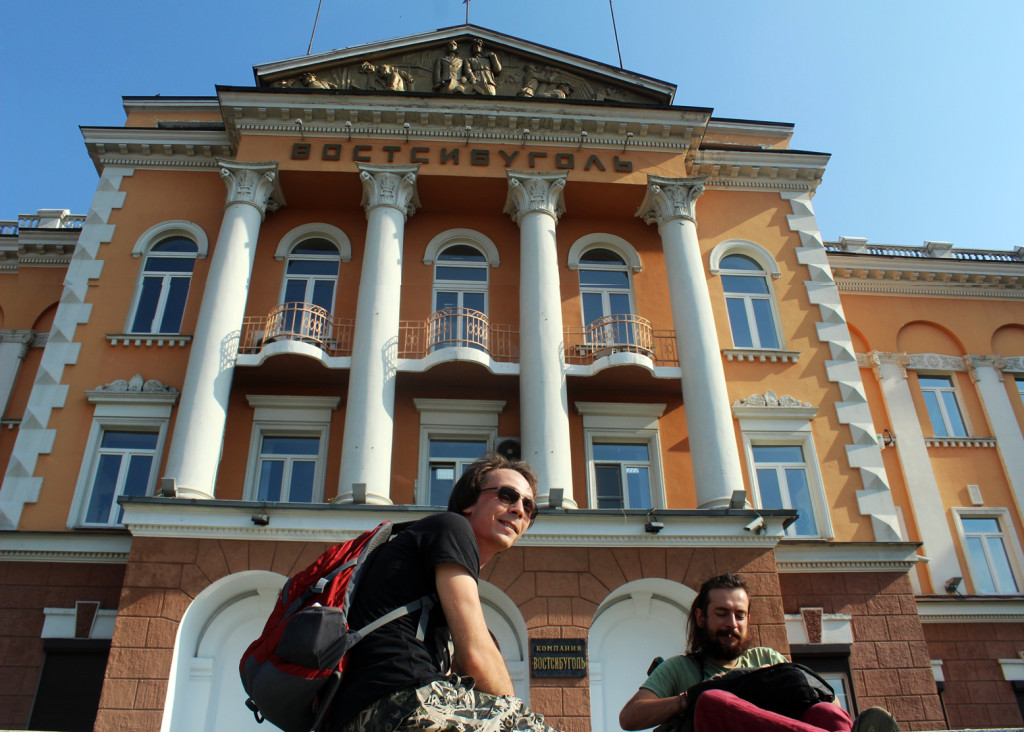


















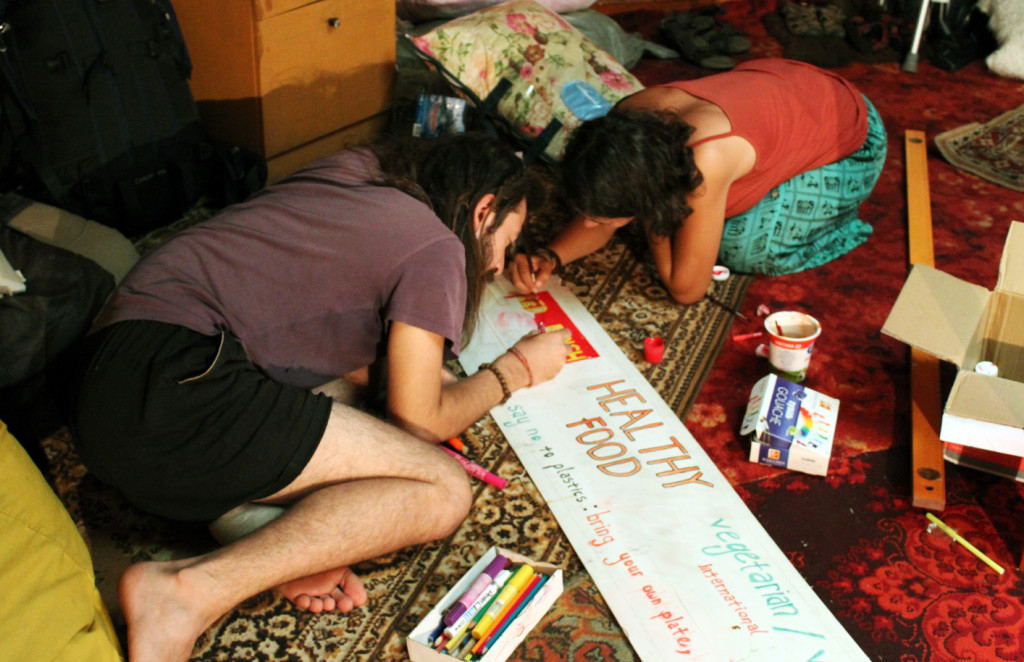
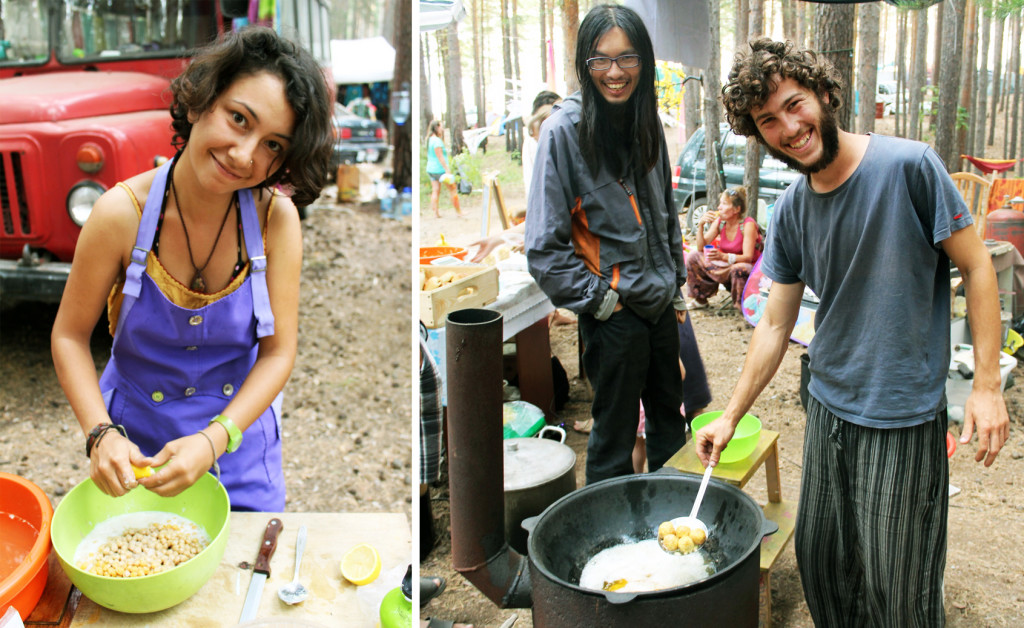







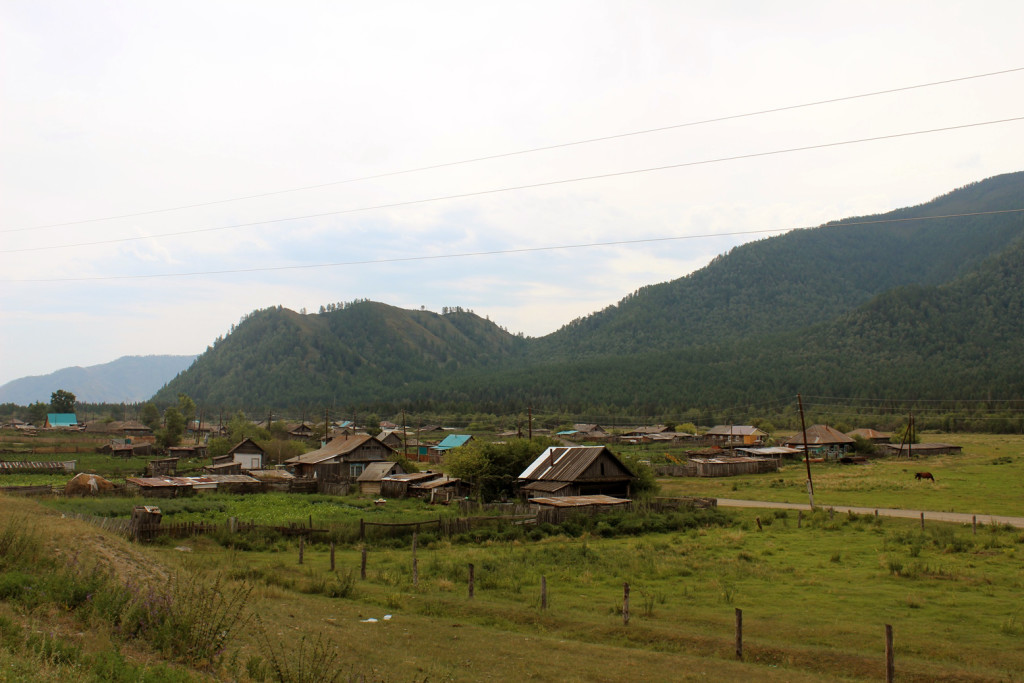
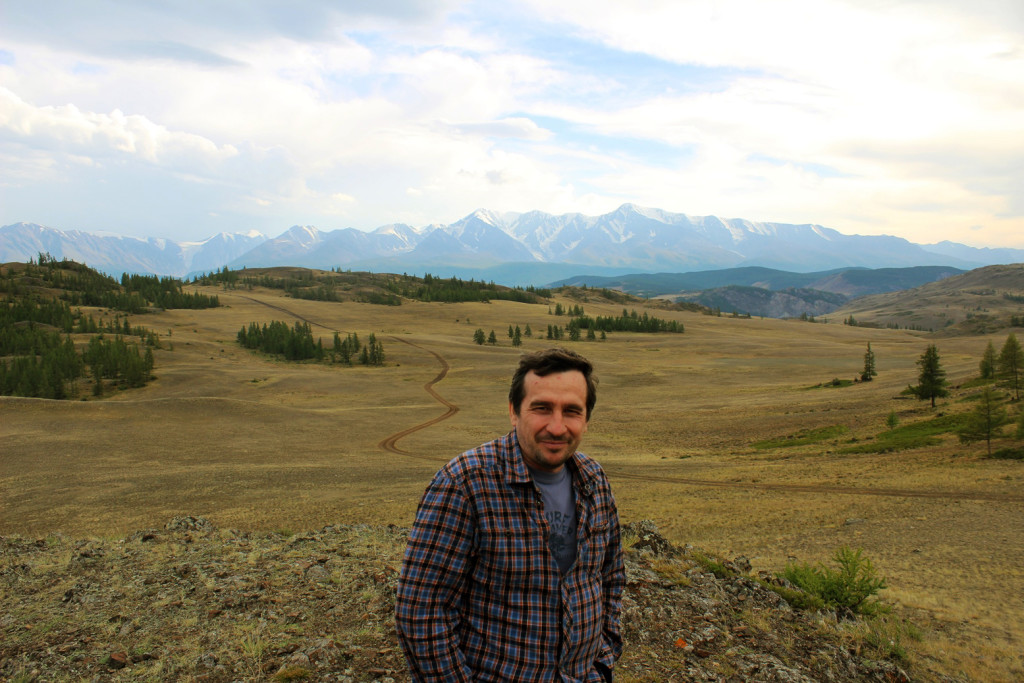
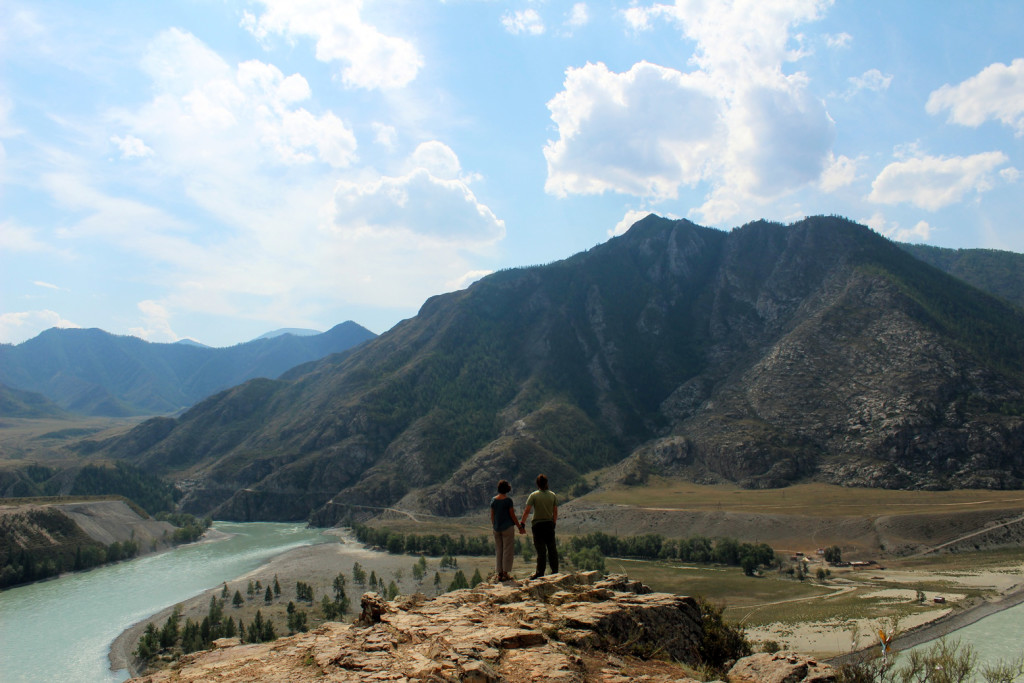

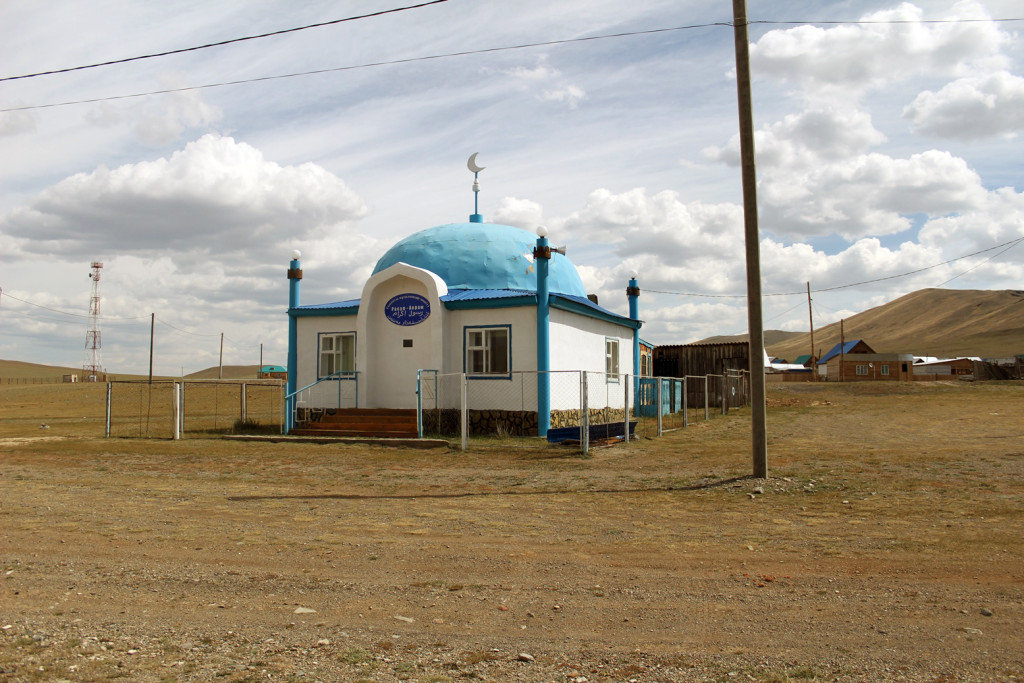

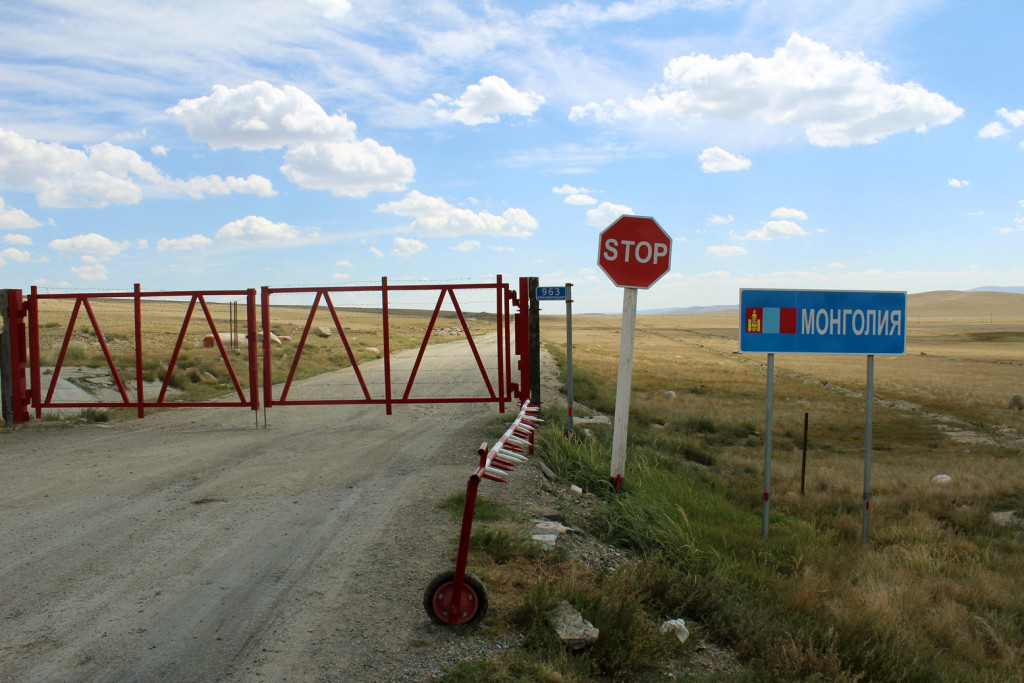

Enjoyed your trip! I want to do something somewhat similar but start in Turkey (where I’ve have visited twice already) into Iran and up towards Kazakhstan and then Mongolia to retrace some Turkic peoples migrations and for the journey.